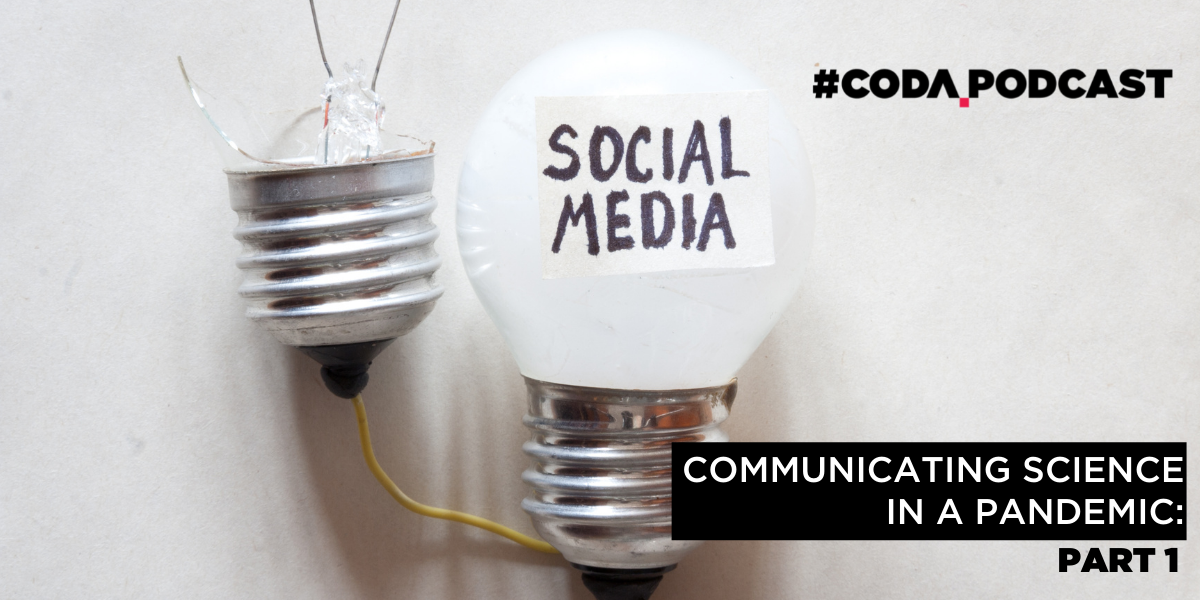Rejecting Science Part 1: Medicine, Social Media and Misinformation
Peter Brindley and Timothy Caulfield answer the big questions around how science and health are represented in the public sphere.
What is science? When do we accept it and when do we reject it? The representation of science and medical information on social media has erupted in recent times – in large part thanks to the Covid-19 pandemic. Along the way, misinformation has come to the forefront. Therefore, why do people believe misinformation, where does it come from and what damage is it doing?
Evidently, these questions are not new, however in the modern world (pre- and post-Covid) they are in the public conversation more than ever. Tim believes that the spread of misinformation is one of the greatest challenges of today – sparking an ‘Infodemic’. The ideological nature of misinformation has also grown in recent times. Whilst Tim contends that it has always been there, it has become more dominant with the ever-growing popularity of social media.
Social media is not going anywhere. As such, we must learn to live with it, and employ its use in such a way to be proactive and productive. Tim talks to the positives of social media, in particular its ability to decrease feelings of social isolation as well as its entertainment and information value. However, the current information environment rewards extremism, polarisation, and the spread of misinformation.
So, is social media the symptom, the disease or both…?
As Tim explains, it is all the above.
How can healthcare professionals move towards a positive use of social media? Tim believes engagement is constructive and he favours healthcare professionals and peak medical bodies being on social media.
Finally, Tim addresses the shifting landscape when it comes to healthcare engaging on social media. Tim believes that clinicians can (and should) share valuable content online.
Rejecting Science Part 1: Medicine, Social Media and Misinformation
For more like this, head to our podcast page. #CodaPodcast
For more on Tim Caulfield, click here.
Timothy Caulfield
Timothy Caulfield is a Canada Research Chair in Health Law and Policy, a Professor in the Faculty of Law and the School of Public Health, and Research Director of the Health Law Institute at the University of Alberta. His interdisciplinary research on topics like stem cells, genetics, research ethics, the public representations of science and public health policy has allowed him to publish over 350 academic articles. He has won numerous academic and writing awards and is a Fellow of the Royal Society of Canada and the Canadian Academy of Health Sciences. He contributes frequently to the popular press and is the author of two national bestsellers: The Cure for Everything: Untangling the Twisted Messages about Health, Fitness and Happiness (Penguin 2012) and Is Gwyneth Paltrow Wrong About Everything?: When Celebrity Culture and Science Clash (Penguin 2015). His most recent book is Relax, Dammit!: A User’s Guide to the Age of Anxiety (Penguin Random House, 2020). Caulfield is also the host and co-producer of the award winning documentary TV show, A User’s Guide to Cheating Death, which has been shown in over 60 countries, including streaming on Netflix in North America.
Peter Brindley
Lucky Canadian Intensivist who is happiest whenever outdoors or laughing. Thinks life is about finding meaning and showing gratitude: even if I don’t always succeed. So pleased to be here sharing ideas and encouraging community.





